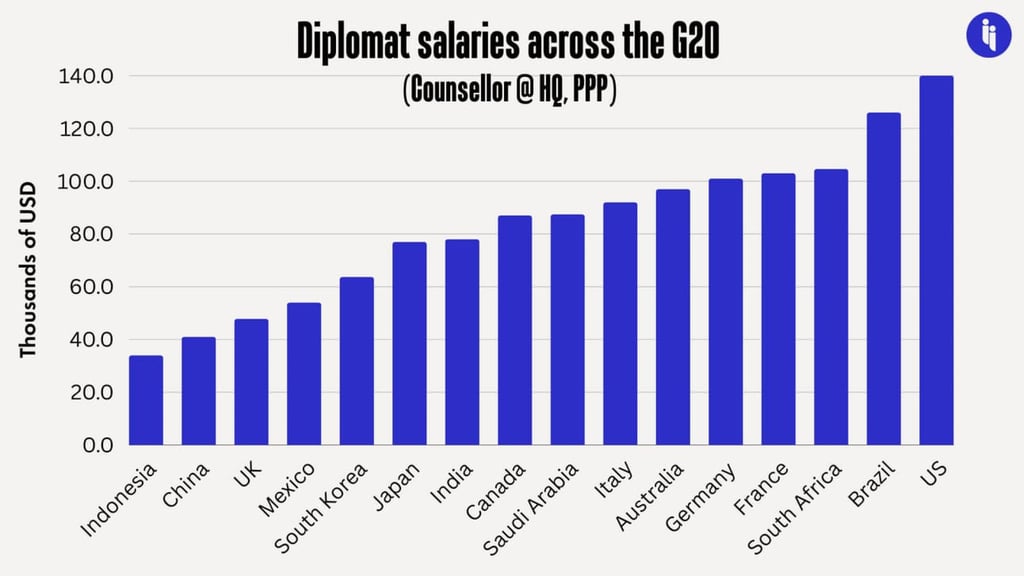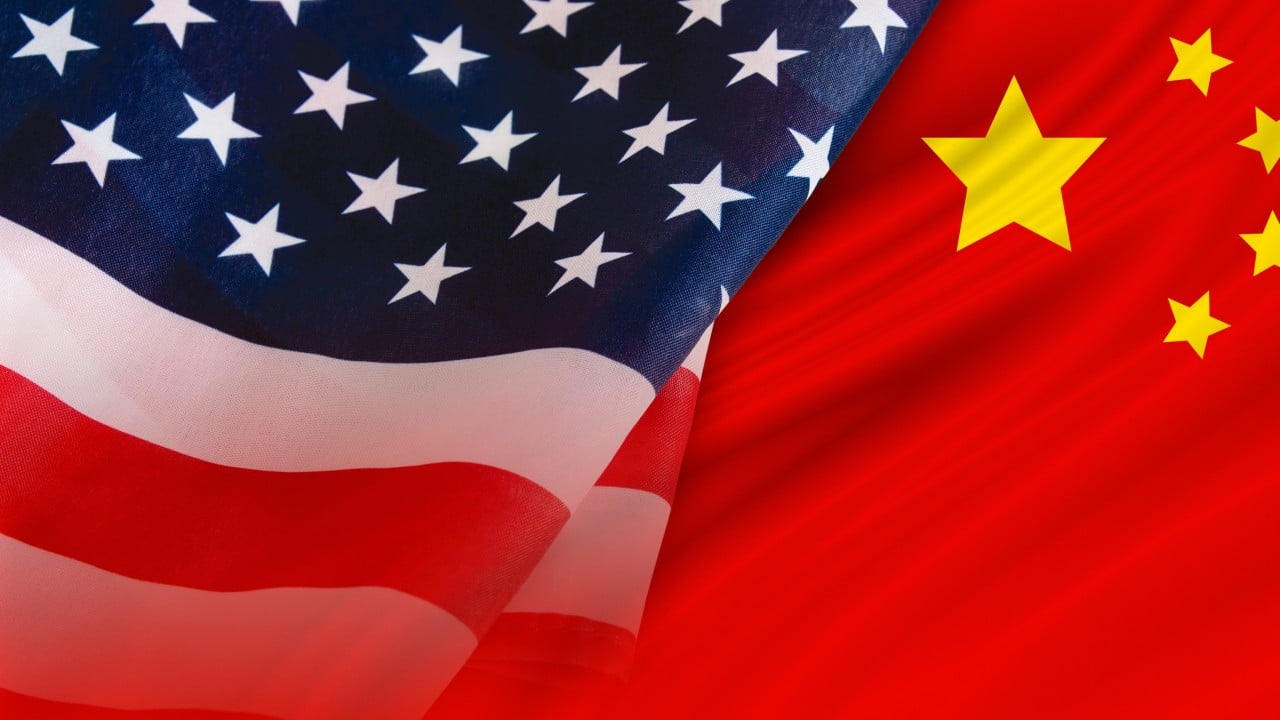American efforts to blunt China’s global influence might be yielding mixed results, but on the issue of compensation, Washington pays its home-based diplomats the best among 16 G20 countries with Beijing placing second to last, a study has found.
The report released on Wednesday by International Intrigue, a media company created by former Australian diplomats, compared salaries of recently promoted mid-level diplomats working at their headquarters, adjusted for purchasing-power parity.
In the grouping of major countries, the US paid its diplomats US$140,000 per year.
Brazil, South Africa, France and Germany rounded out the top five, while China and Indonesia brought up the rear with salaries of US$41,000 and $34,000 respectively. Asian countries, including India, comprised five of the bottom eight analysed.

However, when ranked by how much salaries differed from the local median, India came out on top and the US slipped to third. China still placed near the bottom at 12.
The survey’s specific diplomatic profile was chosen to ensure a common base of comparison and limit variables like the perks that may come with overseas postings, according to Jeremy Dicker, John Fowler and Helen Zhang, the report’s authors.
Their findings reflected interviews with diplomats, employee-union documents as well as open-source material like graduate-recruitment campaigns, online forums and presidential and ministerial decrees.
High inflation in Argentina and Turkey led to their omission from the analysis. Russia was excluded owing to inflation and its geopolitical reputation following its invasion of Ukraine in 2022.
While people generally did not join their country’s foreign service for the pay, it was a major reason for their departure, the authors said. The potential loss of top talent was concerning in light of the number of active conflicts globally, they added.
As of 2023, there were 59 state-based armed conflicts around the world, the highest number since at least 1975, according to the Uppsala Conflict Data Programme at Sweden’s Uppsala University.
Paul Sharp of the University of Minnesota Duluth, whose research focuses on diplomacy, said changing attitudes towards compensation had made it more relevant to diplomatic recruitment.
“In the past, the opportunity to represent one’s country was seen as more important than money,” Sharp explained. “But then you only got people to serve who didn’t need money – not good in a democratic age.”
“Now the pursuit of money is seen as important, almost honourable, and so competitive salaries are viewed as important by members of the recruitment pool.”
In the US, lucrative alternatives to a diplomatic career abound.

“If you’ve got somebody who’s talented enough to get into the foreign service, they’re also talented enough to get a job with McKinsey or Deloitte or Goldman Sachs, and the salary difference between Goldman Sachs and the State Department is huge,” said Stephen Kelly, a former American diplomat who helped State Department recruit.
Kelly, who retired in 2010 after serving in several G20 countries including Indonesia and Canada, said he had not observed an instance of a colleague leaving the foreign service because of money. But he noted it was costly to replace those who exited.
“It’s very expensive to train diplomats,” Kelly explained. “In the case of the US, usually, by the time you get to be a mid-rank officer, you’ve been training in language, area studies, a lot of money has been invested in you.”
In terms of absolute expenditure on diplomacy, the US also outpaces China. In the 2023 fiscal year, Washington spent about US$61.5 billion in discretionary funding on diplomatic engagement and foreign assistance.
In contrast, Beijing spent 57.031 billion yuan (US$7.99 billion) on diplomacy in 2023, an increase from the previous year but still shy of its pre-coronavirus pandemic levels.
Yet even with its better-paid diplomats and larger budget, the State Department had on average 13 per cent of its positions unfilled, according to Richard Verma, US deputy secretary of state for management and resources, in April.
And at a congressional hearing last week, Senate Foreign Relations committee chairman Ben Cardin, Democrat of Maryland, cited 20 countries in which China had an ambassador and the US did not.
Claus Soong of the Mercator Institute for China Studies, a Berlin-based think tank, said China’s low salary ranking did not necessarily reflect how it prioritised diplomacy nor would it likely deter young talent from entering the foreign service.
“Now, under China’s economic downturn, more people want to get into the government because it’s stable,” said Soong.

Signs have emerged that China is retaining a focus on diplomacy despite its inward-looking policies.
Earlier this year, the Post reported that China’s diplomats abroad got a rare pay rise. In addition, Chinese officials stationed overseas were excluded from a move announced last year to reduce staff numbers by 5 per cent across party and state organisations.
These developments followed a Chinese Communist Party meeting in December on the country’s foreign-policy direction in which President Xi Jinping urged diplomats and cadres to “break new ground”, “rally the overwhelming majority” of the world and maintain a “fighting spirit”.
It remains to be seen how effectively Beijing’s efforts translate into actual influence.
The US is viewed more favourably than not, according to a 2024 survey from the Pew Research Centre, based on the median response from 34 countries.
China, on the other hand, was viewed more unfavourably than not, according to a 35-country median, based on a separate Pew survey from this year.
But when comparing China and the US only across low-income countries, favourability ratings for the two countries were more similar.
Regardless, experts and former diplomats contend there is no substitute for investment in diplomacy, especially for middle management.
“Professional diplomats set up the high-profile stuff and keep channels open when governments don’t want to be seen as talking for policy and political reasons,” said Sharp.


